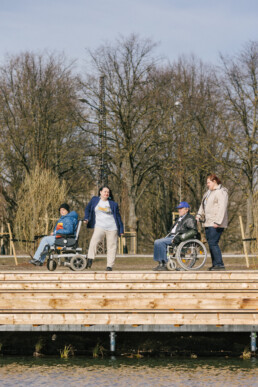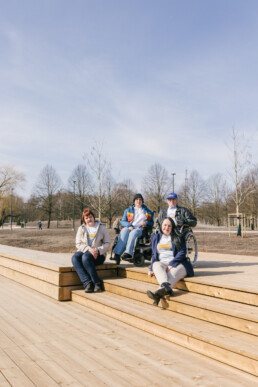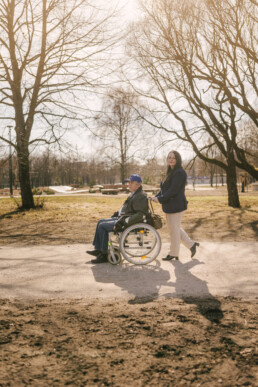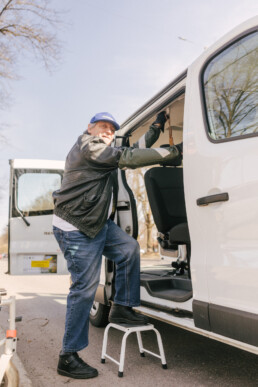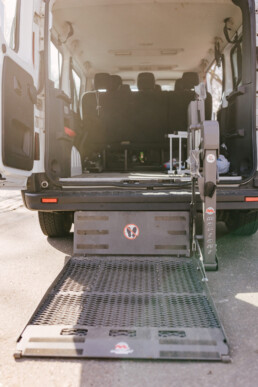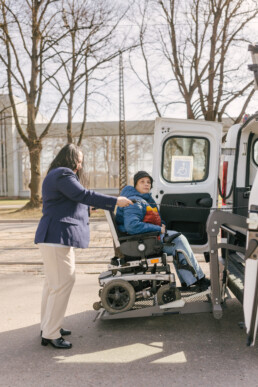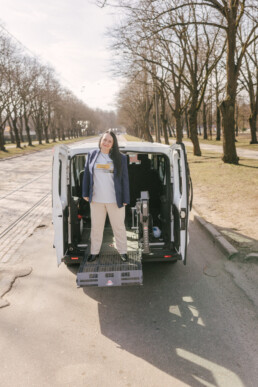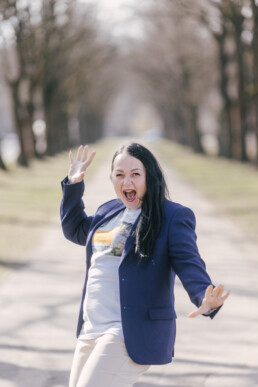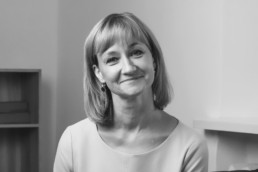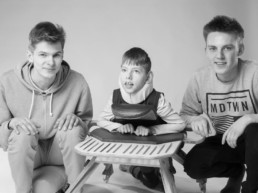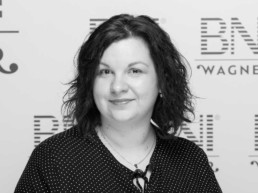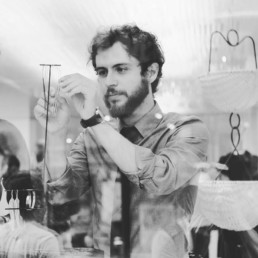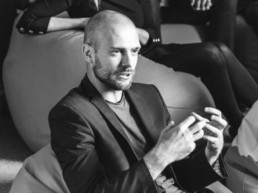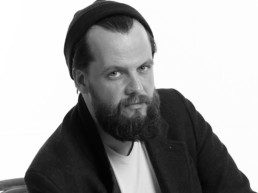Social enterprise “Difftravel”
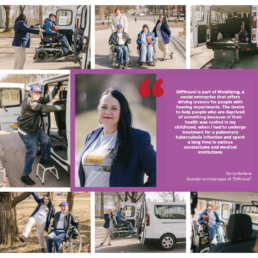
“Diffravel”, Riga
Adapted tourist services and transport providing a full travel service for people with hearing, visual or mobility impairments or reduced mobility.
Graudu iela 68A, Rīga, LV-1058
+371 24888028
Travelling is no longer an exclusive activity, but still not everyone has access to it. That is the reason why the social enterprise Difftravel was created – to provide transport services and tourism opportunities for people with various disabilities or reduced mobility. And to do it in a way that will leave them with fond memories long after the trip – a sort of emotional therapy.
It all started with small trips around Latvia, but now Difftravel organises trips to European countries as well, and plans to develop it more and more. Santa Beitāne, the company’s CEO, emphasises that this is a slow-growing but sustainable business niche with great potential. “This will be our third season, but we haven’t really stopped over the winter either – we’ve been going to warmer places. In the autumn, when the local season ended, we went to Germany, we had Christmas in Prague, then we visited Cyprus and at the end of April we were in Switzerland. And then the local season starts again,” says Santa.
Difftravel differs from a regular tour operator because it adapts the trip plan to its clients needs – knowing that these travellers will not be able to move quickly and will each have their own specific needs, travelling in small groups (no larger than 30 people) and making sure that everyone is comfortable throughout the trip.
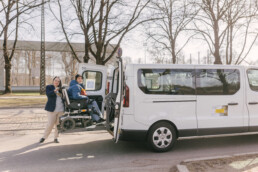
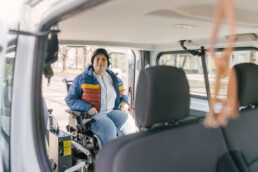
“Difftravel is part of Mobilizing, a social enterprise that offers driving lessons for people with hearing impairments. The desire to help people who are deprived of something because of their health was rooted in my childhood, when I had to undergo treatment for a pulmonary tuberculosis infection and spent a long time in various sanatoriums and medical institutions,” says Santa Beitāne.
But how did the idea for such a special tour company come about? “I wanted to do this for a very, very long time. I think it was 2008 or 2010, but there was absolutely no infrastructure for it in Latvia at that time, and I couldn’t do it alone. The support organisation for people with disabilities “Apeirons” has done a lot in terms of accessibility, a lot has been achieved and improved, and the general perception is slowly changing. However, compared to other European countries, there is still a lot to do. There, for example, accessibility is available even very, very high up in the mountains, where the conditions are supposedly difficult. We still have room for improvement here in Latvia, but we can also see improvements,” says Santa Beitāne.
The choice of trip routes and destinations in Latvia is therefore based on the principle of roughly defining the destination and then assessing which attractions, places of interest or interesting businesses are available along the way. After that, it is a matter of contacting and checking whether, for example, a wheelchair user will be able to get to the chosen point and enjoy the offer. The websites of municipalities and tourist centres are also a good help.
Travelling to other countries is much more complicated. It all starts with booking hotels, which is a lot of work as availability is not always sufficient. “The word ‘accessible room’ does not mean that everything is really adapted. Many people think that if a wheelchair can fit through the door, it’s accessible for disabled people. So you have to get in touch and ask for details: do the toilet have handrails, does the shower have a grab bar, how wide is the door, how high is the bed…,” says Santa. Reservations often need to be changed, and transport availability needs to be thought of right away. For example, when organising a trip to Switzerland, Santa left earlier so that she could bring the bus all the way across Germany to Switzerland and leave it at the airport. Then she flew back to Latvia and joined the group so that she could have the journey from the airport in her own vehicle.
To find the best routes, the Difftravel manager also sometimes does research trips. Artificial intelligence is also a good help, as it can roughly create a route by suggesting stops at a glance: “It does not prepare the precise information. It just provides me some clues, but then I need to check everything.”
Most of the time Santa organises everything on her own, but she gets a lot of help from Aivars Krūzmētra, a board member of the People with disabilities’ Association “Aizvējš”. “I also have Aivars. He has a very sharp mind, he has a disability himself, but his mind – hats off! I make a plan, give it to him and ask him to check and get back to me if anything is wrong! He looks at everything very carefully, notices what I’ve forgotten,” says Santa, grateful for the help.
Without grant support, social entrepreneurship would struggle to survive, as the cost of providing a trip is higher than for a normal tour operator. One of the reason is because the trips are organised in relatively small groups. “It’s not a 40 or 50-seater bus, where all the costs are then spread out,” explains Santa.
She is determined to get another bus in the near future, which has already been reserved. A second driver is also needed to expand the operation. “At the moment I use family members, whom I don’t pay anything, but how long can I do that? This is just a solution for now, I need a second driver who will be paid as an employee,” says the Difftravel manager.
It’s already in the future plans, and Santa is very clear. “I definitely want to develop the specialised vehicle service. Where is the problem? At the moment, if more people with disabilities come to Latvia – even athletes or participants in major events – no one can provide [them with adequate transport]. For example, I was recently asked – can you transport 100 wheelchair tennis players to Valmiera? I would like to do that, I want to develop this specialised vehicle service. And then the next stage – when I’m done with this, I really want to set up a campsite for people with disabilities to host international events. I will not give that up. As long as there is no war in Latvia, I will do it!” Santa Beitāne is determined.

